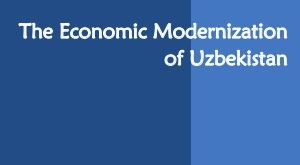CACI Webinar - IMF Economic Outlook for Central Asia & the Caucasus: Mounting Challenges, Decisive Times
The Central Asia-Caucasus Institute invites you to join for a presentation and discussion regarding the International Monetary Fund's October 2022 Regional Economic Outlook for Central Asia and the Caucasus report.
Opening Remarks:
Svante Cornell, Director,Central Asia-Caucasus Institute at American Foreign Policy Council
Speakers:
Subir Lall, Deputy Director, Middle East and Central Asia Department, International Monetary Fund
Mamuka Tsereteli, Senior Fellow, Central Asia-Caucasus Institute at American Foreign Policy Council
When:
Wednesday December 14, 2022, 10:30 AM-11:30 PM EST
CACI Webinar - Central Asia-Caucasus Economic Outlook: Divergent Recoveries in Turbulent Times
Speakers:
Moderator:
[Video Posted] CACI Online Forum: The 2020 IMF Economic Outlook for the Caucasus and Central Asia: Adjusted for COVID-19
The 2020 IMF Economic Outlook for the Caucasus and Central Asia: Adjusted for COVID 19
Opening Remarks and Conclusion by Frederick Starr, Chairman, Central Asia-Caucasus Institute at AFPC
Presentation by Juha Kahkonen, Deputy Director, Middle East and Central Asia, Department, IMF
Moderator: Mamuka Tsereteli, Senior Fellow, Central Asia-Caucasus Institute at AFPC
When: Thursday, April 30, 2020 from 10-11 am EST
The event was live-streamed on our YouTube Channel and is available now.
CACI Forum: Opening Up in the Caucasus and Central Asia
Opening Up in the Caucasus and Central Asia: Policy Frameworks to Support Regional and Global Integration
The Central Asia-Caucasus Institute's (CACI) Forum continued its long-term partnership with the International Monetary Fund (IMF), to present it's semi-annual Economic Outlook for the Caucasus and Central Asia (CCA) and a special paper on how to leverage regional and global integration to capitalize on the more favorable global environment. The subject of discussion is of particular significance in times of profound political and economic changes in the region.
Speakers:
Juha Kähkönen, Deputy Director, Middle East and Central Asia Department, IMF
Peter Kunzel, Assistant to Director, Middle East and Central Asia Department, IMF
Moderator: Mamuka Tsereteli, Senior Research Fellow, Central Asia-Caucasus Institute
Where: Middle East Institute: 1319 18th Street NW, 20036
When: Tuesday, June 5, 2018 from 4:00 - 6:00 pm
Video Below



